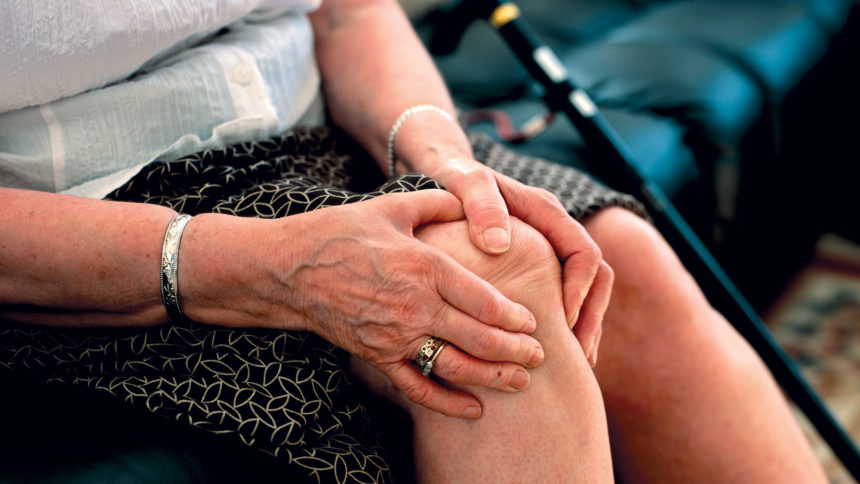
Adults with knee osteoarthritis who participated in a 12-week online yoga program experienced improved knee function in the short term, but the improvement was modest and not sustained, a new study has found.
Researchers from the University of Melbourne in Australia conducted a randomized trial to study the effectiveness of a 12-week online yoga program in improving knee function and mobility and reducing pain among adults with symptomatic knee osteoarthritis.
A total of 212 adults with symptomatic knee osteoarthritis were studied. Approximately half the individuals were assigned a 12-week online yoga program with an online educational component, while the other half received online education only but did not participate in the exercise program.
Researchers found participants who were assigned to the yoga group that completed the 12-week program reported improved physical function and less difficulty walking than those who were in the education group only. However, the improvements were modest and there was no significant difference in knee pain between the two groups.
“Compared with online education, an unsupervised yoga program improved physical function but not knee pain at 12 weeks in people with osteoarthritis,” the study authors wrote.
The authors also found the improvements in function were not sustained among program participants during an optional 12-week period follow the initial mandatory yoga program.
The authors concluded an unsupervised yoga program is feasible and may improve physical function in adults with knee osteoarthritis, but additional research is needed to improve the effectiveness and sustainability of online yoga programs.
The study was published in the Sept. 20 edition of the Annals of Internal Medicine.




